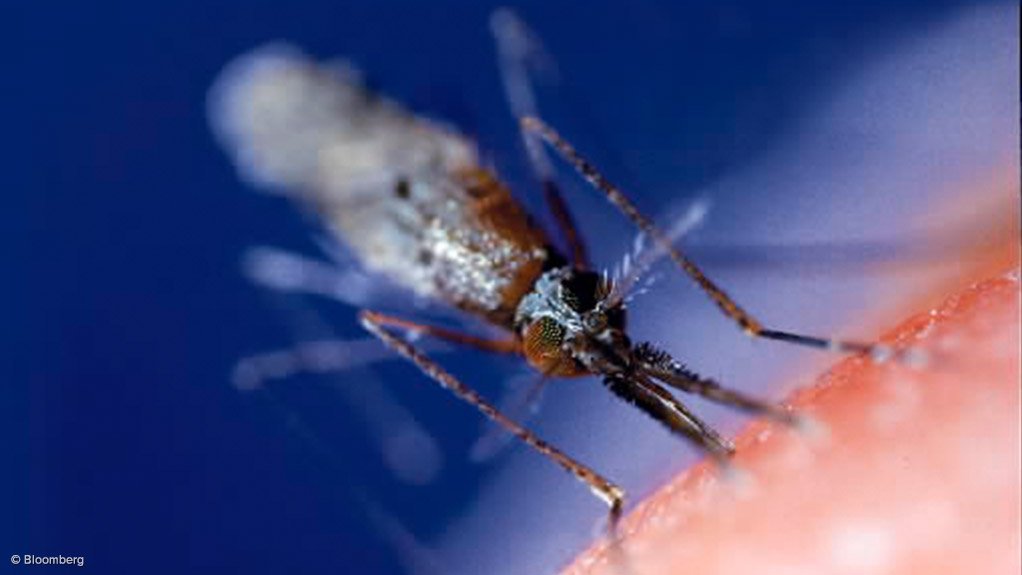/ MEDIA STATEMENT / The content on this page is not written by Polity.org.za, but is supplied by third parties. This content does not constitute news reporting by Polity.org.za.
High numbers of malaria cases are being reported in the malaria transmission areas (Vhembe and Mopani districts) in Limpopo (including some cases in farms along the Lephalale River, Waterberg) and in Bushbuckridge in Mpumalanga province. Compared to previous years, a modest increase in cases in the Kruger National Park and private reserves in the area has been confirmed.
This follows a very busy 2017 malaria season in the entire southern African region, which peaked in April and May and extended into June. High rainfall, humidity and ambient temperatures provided ideal conditions for malaria mosquito breeding and contributed to an increase in malaria cases. Unusually mild winter temperatures in malaria areas have allowed for ongoing mosquito and parasite development and led to an early and busy malaria season which started already in August 2017.
The key prevention strategy of the malaria control programmes in endemic areas is spraying of households with long acting residual insecticides (IRS) which target indoor feeding mosquitos. This IRS programme is in progress in both Limpopo and Mpumalanga and is planned to target a larger area than in 2016. Early treatment of malaria cases is a key strategy. The antimalarial drug, Coartem remains highly effective in the treatment of uncomplicated malaria, provided there is early diagnosis and urgent commencement of treatment.
Travellers from, or residents of malaria transmission areas in Limpopo and Mpumalanga, and the far northern KwaZulu-Natal and neighbouring countries such as Mozambique, Botswana, Zimbabwe and Namibia who present with fever and ‘flu-like’ illness must have an urgent blood test and malaria treated as a medical emergency. Misdiagnosis of malaria as influenza is not uncommon with disastrous consequences in a number of persons.
The Department of Health in South Africa is ensuring universal coverage of key interventions. This includes Indoor Residual Spraying, effective case management and ensuring that health promotion messages reach communities at risk of contracting the disease. All travellers to malaria risk areas must take precautions to prevent mosquito bites and medication to prevent malaria should be highly considered.
• Malaria is a life-threatening disease caused by parasites that are transmitted to people through the bites of infected Anopheles mosquitoes, which generally bite at night.
• Malaria is preventable, treatable and curable.
• Travelers from non-endemic areas to malaria endemic areas and countries are vulnerable to the disease and need to take reventative measures.
• Malaria symptoms appear within 10-15 days after the infective mosquito bite.
• The symptoms include, fever, headache, chills and vomiting.
• Early malaria diagnosis and treatment reduces disease severity and prevents deaths.
• If people suspect that they have having malaria, they should immediately consult their health service provider to be tested and treated.
• If not treated within 24 hours, malaria can progress to severe illness and death. Individuals are therefore advised to take personal protection methods when visiting malaria endemic areas within and outside South Africa.
• Everyone is at risk of contracting malaria in malarious areas (see attached malaria risk map for south Africa), but there are some higher risk groups including, children under five years of age, pregnant women, people with compromised immune systems, travellers from non-endemic areas and immigrant workers.
Issued by GCIS on behalf of the Department of Health
EMAIL THIS ARTICLE SAVE THIS ARTICLE ARTICLE ENQUIRY
To subscribe email subscriptions@creamermedia.co.za or click here
To advertise email advertising@creamermedia.co.za or click here











